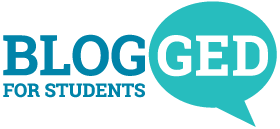By CT Turner, President, GED Testing Service
This year’s GED Conference was nothing short of joyful. Walking through the sessions, hallways, and evening events, I was struck again and again by the energy of a community that cares deeply about learners. The smiles, laughter, and connections reminded me why this gathering is so special—it’s the one time each year when state GED administrators, adult education directors, program leaders, corrections educators, service reps, our own GED team, and valued partners like VUE all come together with a common purpose: to open doors for learners.
Over three days, we delivered more than 36 sessions—everything from program marketing to accommodations and accessibility, to strategies for supporting diverse learners. We also had important conversations with test administrators and corrections educators, as well as general sessions where we reaffirmed our vision and outlined our promises for the year ahead.
One of the most unforgettable moments was honoring our GED Graduate Scholarship Award recipients. Watching these graduates walk across the stage, share their stories, and receive recognition for their hard-earned success was deeply moving. Their journeys reminded us that the GED credential is not just about passing a test—it’s about resilience, possibility, and creating new futures. That moment captured the heart of our work.
Another theme that resonated throughout the conference was AI—not as a buzzword, but as a tool educators are already exploring to personalize learning. AI has the potential to meet learners where they are, adapt to their pace, and remove the fear of asking questions. Imagine a space where learners can practice, stumble, and grow without shame—freeing educators to focus on connection, encouragement, and deeper instruction. That’s the future we’re building.
In my address, I shared a belief that has only grown stronger after this week: every learner has had someone—an educator, a mentor—who changed their trajectory. Sometimes it’s a painful story of a teacher who left them feeling discouraged. But far more often, it’s the heroic stories: the instructor who stayed after class, the mentor who kept calling when a student wanted to quit, the program director who created opportunities a learner never thought possible. That’s the power of this community.
Looking ahead, we also talked about the future of work. Equitable access to opportunity—particularly in fields like technology, healthcare, and green energy—is more critical than ever. GED learners deserve a fair shot at these jobs. Our role is to make sure the credential is not just a test, but a bridge to better jobs, stronger families, and thriving communities.
As I left the conference, I felt both proud and optimistic. Proud of the work already happening in every state, every classroom, every program. And optimistic because I know that together, we’re moving toward a future where learners have more tools, more pathways, and more support than ever before.
And we’re not done. On September 16, we’ll celebrate National GED Day—a moment to honor the life-changing impact of this credential and the educators who make it possible. I hope you’ll join us in celebrating the learners who remind us why we do this work.


